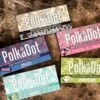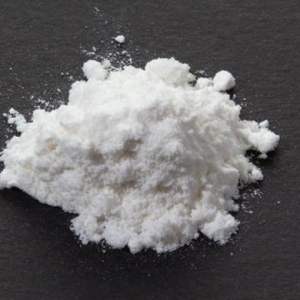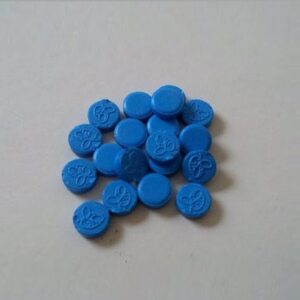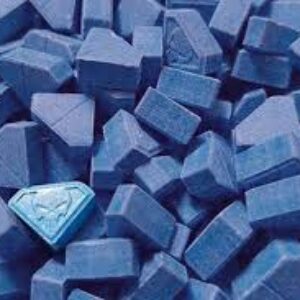Dark Chocolate Bar
$50.00
Dark Chocolate Bar: A Comprehensive Guide.
Description;
Dark chocolate bar has gained immense popularity over the years, not only for its rich flavor but also for its potential health benefits. Made from cocoa solids, cocoa butter, and sugar, dark chocolate typically contains a higher percentage of cocoa than milk chocolate, making it a favorite among chocolate enthusiasts. This article explores the various aspects of dark chocolate, including its history, health benefits, types, and answers to common questions.
The History of Dark Chocolate
The origins of Dark chocolate Bar date back to ancient Mesoamerican cultures, where cacao beans were used to create a bitter beverage. The Olmecs, one of the earliest civilizations in the region, are believed to have been the first to cultivate cacao around 1500 BCE. The Mayans and Aztecs later adopted cacao, using it in religious ceremonies and as a form of currency. When chocolate was introduced to Europe in the 16th century, it underwent significant transformations, eventually leading to the creation of solid chocolate bars in the 19th century.

How is Dark Chocolate Made?
Dark chocolate Bar is produced through a multi-step process. First, cacao beans are harvested from cacao pods and fermented to develop their flavor. After fermentation, the beans are dried, roasted, and cracked to separate the nibs from the shells. The nibs are then ground into a paste known as chocolate liquor, which contains both cocoa solids and cocoa butter. The final product is created by mixing the chocolate liquor with sugar and sometimes additional cocoa butter, resulting in a smooth, rich Dark chocolate bar.
Is Dark Chocolate Vegan?
Most dark chocolate Bar varieties are considered vegan, as they do not contain milk or dairy products. However, it is essential to check the ingredient list, as some brands may add milk fat or other non-vegan ingredients. Additionally, cross-contamination with milk products can occur during manufacturing, so those with strict dietary preferences should look for certified vegan options.
Nutritional Profile of Dark Chocolate
Dark chocolate Bar is often praised for its nutritional benefits. A typical serving of dark chocolate (about 1 ounce) contains approximately 170 calories, 12 grams of fat, and 24 grams of carbohydrates. It is also a good source of iron, magnesium, copper, and manganese. The higher the cocoa content, the more beneficial compounds, such as flavonoids, are present. These compounds are known for their antioxidant properties, which can help combat oxidative stress in the body.

Health Benefits of Dark Chocolate
1. Heart Health: Consuming dark chocolate Bar in moderation has been linked to improved heart health. Studies suggest that the flavonoids in dark chocolate can help lower blood pressure, improve blood flow, and reduce the risk of heart disease.
2. Cognitive Function: Research indicates that dark chocolate may enhance cognitive function. The flavonoids in dark chocolate can improve blood flow to the brain, potentially boosting memory and overall brain health.
3. Mood Enhancement: Dark chocolate Bar contains compounds that can stimulate the production of endorphins, the body’s natural feel-good chemicals. Additionally, it contains serotonin, which can act as an antidepressant.
4. Blood Sugar Regulation: Some studies suggest that dark chocolate may improve insulin sensitivity, which can help regulate blood sugar levels. This is particularly beneficial for individuals at risk of type 2 diabetes.
Types of Dark Chocolate
Dark chocolate comes in various forms, categorized primarily by cocoa content. The cocoa percentage indicates the amount of cocoa solids and cocoa butter in the chocolate. Common types include:
– Bittersweet Chocolate: Contains 60-70% cocoa and is often used in baking.
– Semisweet Chocolate: Typically contains 50-60% cocoa and is commonly found in chocolate chips.
– Extra Dark Chocolate: Contains 70% cocoa or more, offering a more intense flavor and higher antioxidant content.
How to Choose Quality Dark Chocolate
When selecting dark chocolate, consider the following factors:
– Cocoa Percentage: Look for chocolate with at least 70% cocoa for maximum health benefits.
– Ingredients: Choose chocolate with minimal ingredients. Ideally, it should contain cocoa mass, cocoa butter, and sugar without artificial additives.
– Source: Opt for brands that source their cocoa sustainably and ethically, ensuring fair trade practices.

Common Questions About Dark Chocolate
1. Can dark chocolate help with weight loss?
While dark chocolate Bar is calorie-dense, consuming it in moderation can satisfy sweet cravings and prevent overeating. Its rich flavor may help curb the desire for larger portions of less satisfying sweets.
2. How much dark chocolate should I eat daily?
Most experts recommend consuming about 1 ounce (28 grams) of dark chocolate per day to enjoy its health benefits without excessive calorie intake.
3. Does dark chocolate contain caffeine?
Yes, dark chocolate contains caffeine, although in smaller amounts than coffee. The caffeine content varies based on the cocoa percentage, with higher cocoa chocolate containing more caffeine.
4. Is dark chocolate good for skin?
The antioxidants in dark chocolate can benefit skin health by improving circulation and hydration. Some studies suggest that consuming dark chocolate may protect the skin from UV damage.
The Role of Dark Chocolate in Culinary Arts
Dark chocolate is a versatile ingredient in the culinary world. It can be used in various recipes, from desserts like brownies and cakes to savory dishes that incorporate chocolate for depth of flavor. Chefs often pair dark chocolate with fruits, nuts, and spices to create unique flavor combinations that tantalize the palate.
Dark Chocolate and Sustainability
As awareness of environmental issues grows, many chocolate brands are focusing on sustainable practices. This includes sourcing cocoa from farms that prioritize biodiversity, fair labor practices, and environmentally friendly farming methods. Consumers are encouraged to support brands that demonstrate a commitment to sustainability.
Conclusion
Dark chocolate Bar is more than just a delicious treat; it is a complex food with a rich history and numerous health benefits. By understanding its origins, nutritional profile, and how to choose quality products, consumers can enjoy dark chocolate as part of a balanced diet. Whether indulging in a bar after dinner or incorporating it into recipes, dark chocolate offers a delightful experience that can also contribute to overall well-being.
Be the first to review “Dark Chocolate Bar” Cancel reply
Related products
Psilocybin Edibles
Adderall XR
Other Psychedelic
Psilocybin Mushrooms
MDMA
Psilocybin Mushrooms
Other Psychedelic
MDMA













5 reviews for Dark Chocolate Bar
There are no reviews yet.